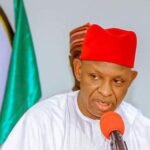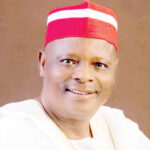Nigeria signed and ratified both the Convention on the Rights of Persons with Disability (CRPD) and its Optional Protocol on March 30, 2007 and September 24, 2010 respectively. Article 24 of the CRPD provides that all schools must be inclusive of, and accessible to all children including those with disabilities in Nigeria. Nigeria has equally signed-up to the 17 Sustainable Development Goals (SDGs), Goal 4 of which targets that by 2030, all school-age children including those with disabilities must have access to qualitative, functional and effective basic education. Nigeria’s National Policy on Education 2015 provides that education must be inclusive and that all children including those with disabilities have the right to qualitative, functional and effective basic education.
The Universal Basic Education Act of 2004 provides that basic education is free and compulsory for all school-age children. Nigeria’s National Policy on Special Needs Education 2015 requires that the Federal and State Governments ensure that the education of children with Special Needs is free at all levels. The Federal, State and Local governments are also to ensure that all necessary training, facilities and equipment that would ensure easy access and implementation of Special Needs Education programmes and services are provided for.
After 10 years of the CRPD sign-ups, five years of the National Policy on Special Needs Education and three years after the existence of the Discrimination against Persons with Disabilities (Prohibition) Act, a vast majority of persons with disability are still denied access to basic education, skills, training and quality inclusive education. Exclusion of children with disabilities from education has an adverse economic impact at the family, community, and country level. The schooling deficit experienced by children with disabilities can become the most challenging impediment to earning an income and long-run financial health as adults. Recent studies show a positive wage return on education for children with disabilities, while the costs of exclusion of persons with disabilities from the labour market range from three per cent to seven per cent of a country’s GDP.
Persons with disabilities are more likely to experience adverse socioeconomic outcomes such as less education, poor health access, lower levels of employment, and higher poverty rates. Not only do people with disabilities experience a disproportionately high level of poverty, being poor increases their chances of having a disability and reduced their access to vital services such as access to quality inclusive education and health care service.
Twenty-five million Nigerian citizens are living with disabilities. This is approximately 20 per cent of the entire Nigerian population.
Globally, there are between 93 and 150 million children with disabilities under the age of 14, according to the 2011 World Report on Disability. In Africa, an estimated 6.4 per cent of children in this age range have moderate or severe disabilities; and less than 10% of all children with disabilities under the age of 14 are attending school. Research has shown that children with disabilities constitute more than 50 per cent of the over 10.5 million out of schoolchildren in Nigeria. According to UNICEF, about 95 per cent of children with disabilities amounting to about seven million children with disabilities are out of school in Nigeria.
Nigeria may have a sunshine Special Needs Education policy that clearly stipulates what is needed to provide best inclusive education, but in practice, the policies lack implementation, and political will. Special needs education is capital intensive – procurement of assistive learning technologies, and training for staff, certifications programmes, construction of state of the art facilities, provision of transportation, etc. However capital-intensive special needs schools are, they are affordable by the government, if backed with political will and priority given to provide better educational access for persons with disability and special needs. For a country like Nigeria with vast resources and a huge volume of fiscal wastages and misappropriation, the problem is one of political will, wide fiscal leakages in the public systems, absence of transparency and accountability, lack of public disclosure and the total disregards for the needs of persons with disability in tangible ways.
Fiscal provisions in the form of budgetary allocation to operationalise these laws at national, state and local government levels have not been as expected. PWDs are still suffering the same challenges of discrimination and marginalisation even in the budget processes at the national, state and local government levels. PWDs are excluded in the budget planning, budget consultations, budget drafting, and budget defence in the executive and legislative chambers. PWDs are absent in the budget implementation and budget evaluation and reporting. Hence, they lack opportunities to influence public and policy directions in ways to foster their and demand for wider access to quality education and health services, needed to aid their self-journey away from poverty, and contribute more to the society.
Historically, budget line items for programs and projects that relate to persons with disability at national, state and local government levels are never specified or explicit. The line items are most times embedded in generally ambiguous budget line items, and even in implementation of such programs, information and data on the impacts of these projects and programs are never disaggregated to show the direct impact on persons with disability. Even civil society organisation, research hubs and think tanks that engage in budget analysis, social impacts and public finance advocacy in Nigeria and most part of the World, more often omit and forget the impacts on PWDs in their scope of research, budget analysis and advocacies.
More often, the budget documents are not prepared in formats that are accessible to persons with disabilities i.e to the visual impaired. Budget documents even in their limited hardcopy format are not available on the websites of the most states and local governments for public to download. More than 99.5 per cent of local government councils in Nigeria do not have a functional website; talk more of having budget documents uploaded. The same also applies to state governments in Nigeria in when website constructions are almost free. When effort are made to get hard copies of public documents like the budget, these documents from the local and state government secretariats, access to the building and offices becomes the challenge; as they are mostly not designed to be accessed by PWDs. The poor access to education and the analytical skills required to understand the budget document and effectively engage with the government and other stakeholders is another challenge among the PWD community and civil society actors.
It is, therefore critical to ensure, in this regard, the full and equal participation of persons with disabilities in all spheres of fiscal planning and implementation of the National, State and Local government budget. This is to ensure that the budget works for all persons living with disability; after all, disability should be everyone’s business, because anything can make anyone disabled, at any point in time.
Donald Ikenna Ofoegbu, a researcher and writer, lives in Abuja

 Join Daily Trust WhatsApp Community For Quick Access To News and Happenings Around You.
Join Daily Trust WhatsApp Community For Quick Access To News and Happenings Around You.


